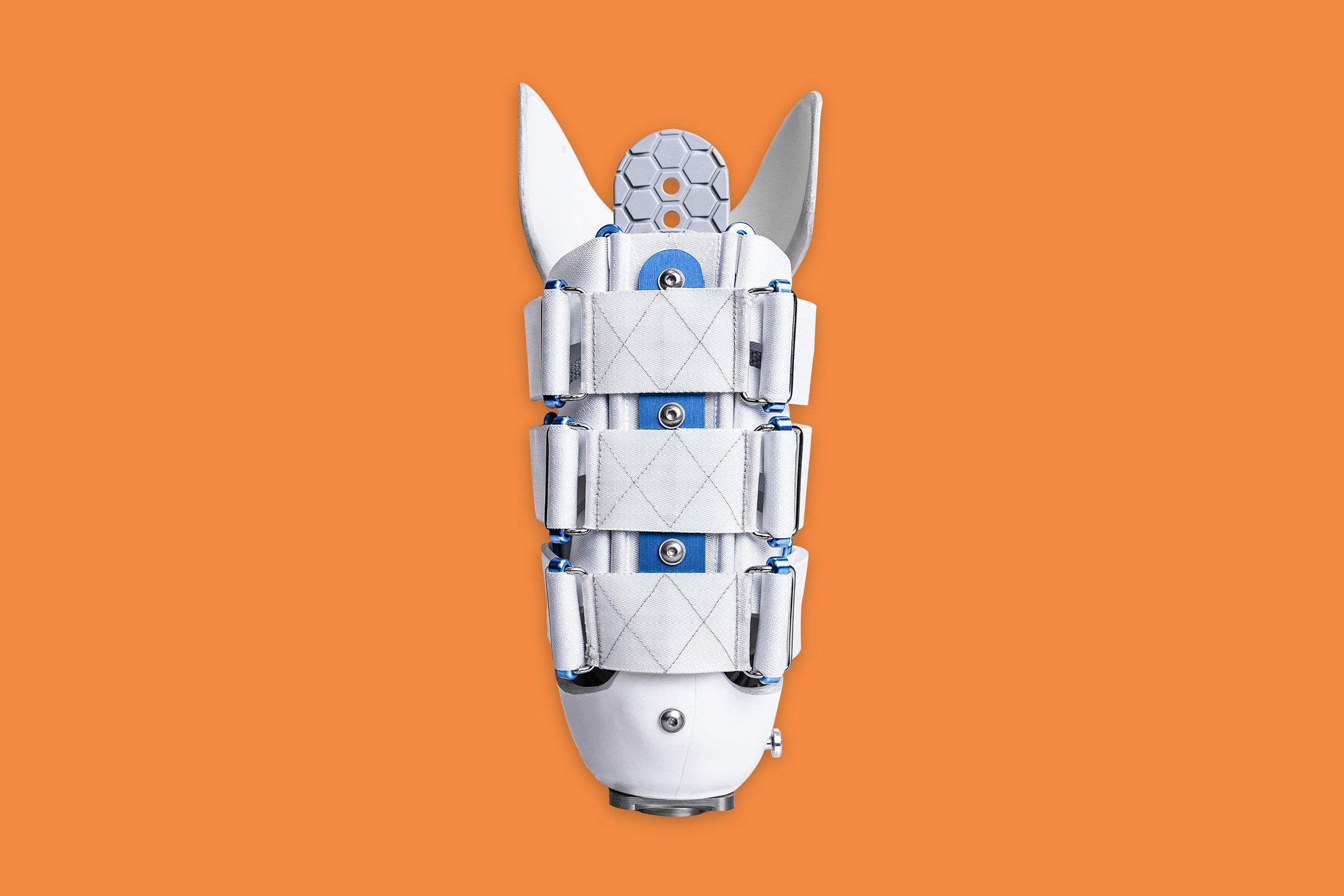Thanks to microprocessors and robotics, artificial limbs have hit new heights of innovation. But the socket— the molded plastic piece that attaches prosthesis to person—hasn’t made such major strides. Until now. The Socket-Less Socket replaces the often uncomfortable molded plastic fittings of more standard prostheses with a custom set of straps and bindings that can be tightened or loosened as needed. “It’s the difference between wooden clogs and carbon-fiber shoes,” says Martin Bionics founder Jay Martin. Traditional sockets offer one hour of comfort before they need to be removed to adjust padding, cool down or address areas of rubbing. The Socket-Less Socket stays comfy for more than three. Covered by Medicaid and most insurance carriers (depending on the policy, co-pays range from zero to about $2,000), the device costs about the same as the old plastic sockets it seeks to replace. —Marjorie Korn
- The 100 Most Influential People of 2024
- The Revolution of Yulia Navalnaya
- 6 Compliments That Land Every Time
- What's the Deal With the Bitcoin Halving?
- If You're Dating Right Now, You're Brave: Column
- The AI That Could Heal a Divided Internet
- Fallout Is a Brilliant Model for the Future of Video Game Adaptations
- Want Weekly Recs on What to Watch, Read, and More? Sign Up for Worth Your Time
